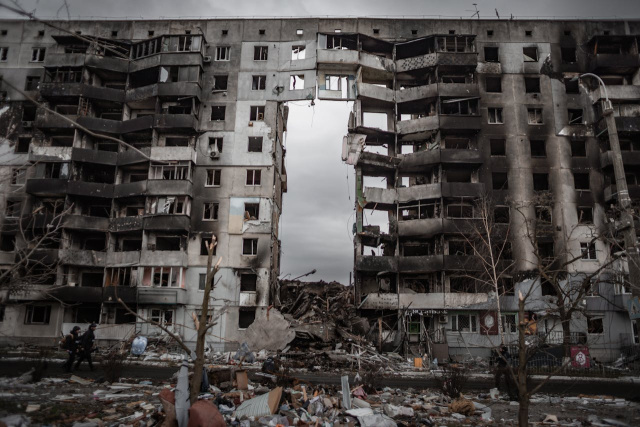
A new survey has revealed that three-quarters of Ukrainians view Russia’s proposed ‘peace plan’ to end the war as completely unacceptable. Conducted by the Kyiv International Institute of Sociology (KIIS) between 2 and 14 September, the poll shows that 75% of respondents reject Moscow’s conditions outright, while only 17% would be willing to accept them.
The Russian plan, as outlined in the survey, includes several key demands: the lifting of all sanctions imposed by the US and Europe; granting Russian official language status in Ukraine; a drastic reduction of Ukraine’s armed forces; a permanent renunciation of NATO membership, along with a ban on Western arms deliveries; and the recognition of Russia as one of Ukraine’s security guarantors. In addition, it requires Ukraine to withdraw from the cities of Kramatorsk, Sloviansk, and other parts of Donetsk Oblast still under Kyiv’s control, while officially recognising Crimea, Donetsk, and Luhansk as part of Russia. Moscow would also retain its hold over occupied territories in Kherson and Zaporizhzhia oblasts.
When asked about this scenario, 65% of Ukrainians said such an outcome would represent a defeat for their country. Only 7% would describe it as a partial or complete success, and 19% said it would be a mixed result, both success and failure.
By contrast, the European and Ukrainian peace proposal receives much broader support. According to the same survey, 74% of respondents – albeit often without great enthusiasm – said they would accept this option, while 15% firmly rejected it. Should such a plan be implemented, 30% of Ukrainians would consider it a success for their country, 44% would view it as a balanced outcome, and only 18% would see it as a failure.
The regional breakdown underscores the consistency of attitudes across the country. Between 61% and 80% of residents in every oblast reject Russia’s version of peace, while 72% to 77% in each oblast say they could accept the European and Ukrainian alternative.
The KIIS poll was carried out through telephone interviews with 1,023 adults selected from a random sample of mobile numbers. All respondents were located in areas under Ukrainian government control at the time of the survey. People living in territories occupied by Russia were not included, though the sample did contain some internally displaced persons. Citizens who had left Ukraine after 24 February 2022 were also excluded.
Formally, with a probability of 95% and accounting for a design effect of 1.3, the maximum margin of error for this sample does not exceed 4.1%. Researchers note that the realities of wartime create additional systematic bias, but they stress that the findings remain highly representative and provide a reliable picture of public sentiment.



